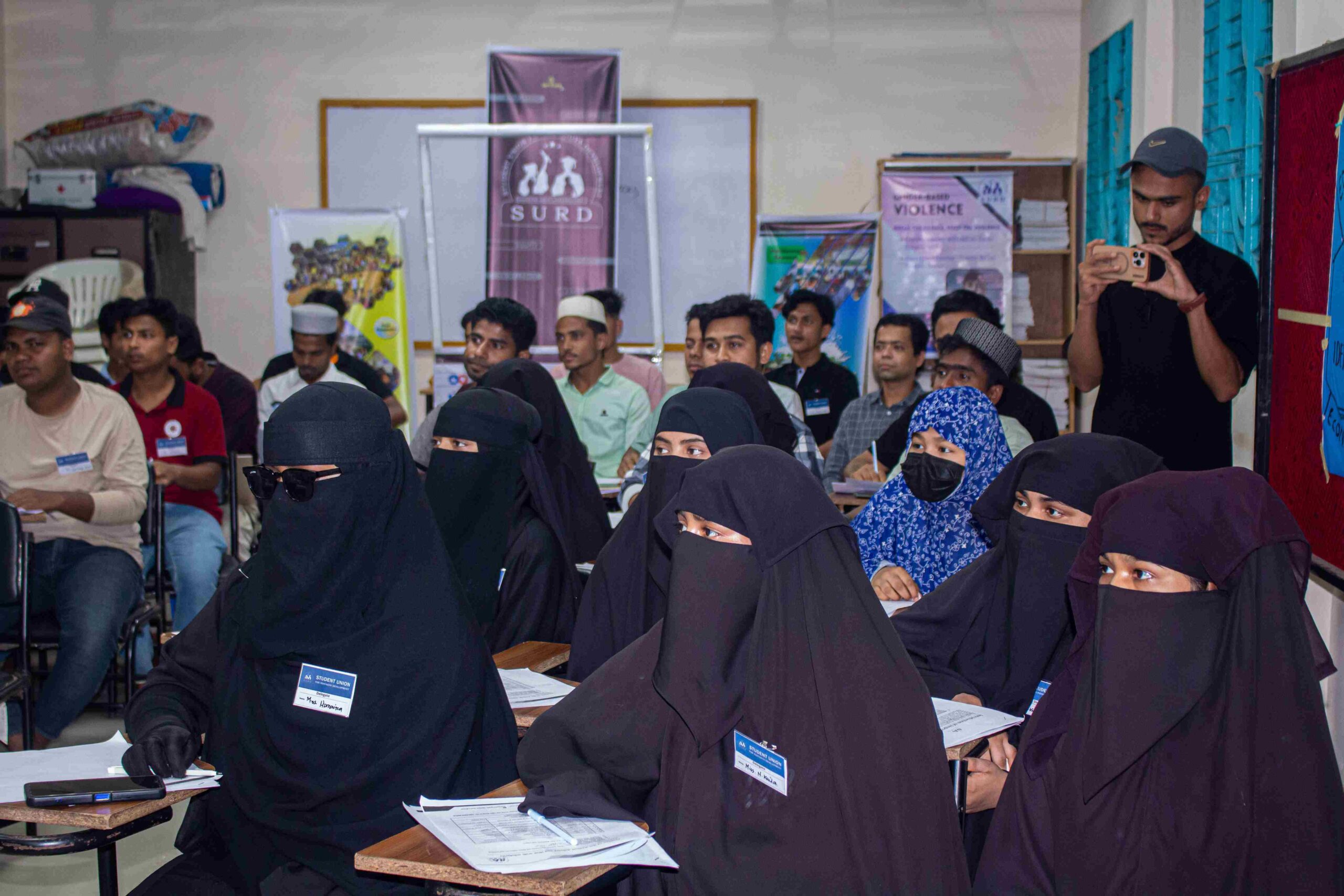Women
Women’s empowerment is integral to SURD’s vision of an inclusive and equitable society. By addressing barriers such as gender inequality, child marriage, and limited access to education, SURD enables women to participate in leadership, economic activities, and decision-making processes. Empowered women improve family and community well-being, fostering broader social change. Through education and advocacy, SURD amplifies women’s voices, ensuring their inclusion in policy discussions and community development. Women’s empowerment also strengthens youth and research initiatives, creating a balanced approach to progress. Their active involvement ensures a holistic transformation that benefits the entire Rohingya community.
Alignment with SDGs and Refugee Rights:
Women’s empowerment aligns with SDG 5 (Gender Equality) and SDG 10 (Reduced Inequalities), ensuring that women refugees enjoy equal opportunities and protection of their rights under international law. Empowered women improve community resilience by reducing poverty, improving education, and promoting health. For Rohingya women, addressing barriers such as early marriage and lack of access to education is essential for enabling them to participate in decision-making and economic activities, which benefits the entire community.
Strategic Plan to Navigate:
SURD provides tailored workshops for women on rights awareness, vocational skills, and leadership. It establishes safe spaces for women to learn and grow, engaging community leaders to advocate for gender-sensitive policies. Through partnerships with NGOs, SURD aims to expand women-focused programs and integrate gender equality into broader community initiatives, ensuring that women play a key role in shaping the community’s future.

SURD is interested in supporting the Bangladesh government in combating Gender-Based Violence (GBV) through community-driven and collaborative initiatives. By conducting awareness campaigns, SURD educates men and women on the harmful impacts of GBV, fostering a culture of respect and equality. Safe spaces are established to support survivors, offering counseling and resources to help them recover. Through training programs, SURD equips community leaders and volunteers with skills to prevent, identify, and respond to GBV cases effectively. Collaborative advocacy with the government and NGOs ensures stronger enforcement of anti-GBV laws and the implementation of gender-sensitive policies. Additionally, SURD conducts research to identify GBV trends and gaps in existing interventions, providing actionable insights for targeted solutions. By aligning its grassroots efforts with national priorities, SURD helps create a safer and more equitable environment for the Rohingya community and beyond, addressing a critical issue with sustainable, community-focused solutions.
